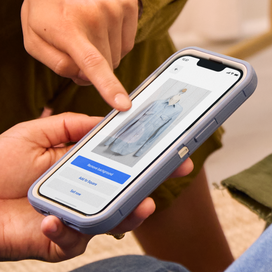Table of contents
Do you have a set of skills you’ve already been sharing with the world, perhaps as a freelancer? Does everyone keep asking you to help them with their marketing/photography/TikTok/social media spend/LinkedIn opinion pieces/whatever that thing you do is?
It sounds like you’re in demand, and you probably already know your skills are valuable – so maybe you’re thinking it’s time to make it official and launch an agency. Amazing!
First off, let’s field a couple of questions:
What is an agency?
An agency is a business that provides a service, or services, to another business, an organisation or an individual. For example, a marketing agency, an employment agency or a real estate agency. There are many types, but one thing they all have in common is a specialisation – a service that’s their core product and focus, be that search engine optimisation (SEO), copywriting or website design. Some large agencies, with variously skilled employees and many clients, might specialise in a few related fields.
Why start an agency?
If you’re thinking about starting an agency, chances are you have a strong skill set and deep knowledge in a particular field, and you want to make use of that expertise. By starting an agency, you can engage with and provide a service to a range of clients, rather than just one business. You might have worked for several companies over the years, and you feel that now is the right time to strike out on your own. Or perhaps you’re already a freelancer, but you want to start taking on larger clients and projects. Whatever your situation, you almost certainly have a passion for what you do, and that’s going to help you to define your agency and bring in your first clients.
What if this is my first time starting a business
Don’t fret, we’ve got a go-to guide on how to start a business here.
Okay, now that we’ve got those questions out of the way, let’s look at what else you’ll need to consider when starting an agency.
Starting an agency
Get specific: What’s your niche?
As a new agency, you’ll need to craft a succinct and persuasive pitch to attract clients. This is where it’s essential to figure out your niche. What service, or services, is your agency going to provide? How will your offering fit into the current market? This is something to map out in your business plan – but what do you actually need to consider?
Hopefully, you’ve put some thought into this already. You may have researched the market to discover what other agencies in your field are doing. Look for a gap. Is there a service that clients might want but nobody is delivering? Or is there a service you can provide a new take on or do better than anyone else?
If your agency is offering the same services and seeking the same clients as others, you’ll need another way to stand out. Think about your skills and experience. Can you offer a more-tailored or more-comprehensive service? Or is there a way to demonstrate that you’re the best at what you do? What about cheaper rates (without undervaluing your work, of course) or faster turnarounds?
Once you’ve worked this out, you’ll be able to develop a persuasive pitch for your services. And this will inform your marketing strategy and the clients you seek out.
Finding your first clients
To secure your first clients, you’ll need a two-pronged approach to networking and marketing.
Before you get carried away writing ad copy and asking your mum to call up all her friends, you’ll need a digital presence. This will likely include a website, LinkedIn profile and social media accounts. These will often be the first contact points that prospective clients have with your agency, so it’s worth spending the time, and perhaps a bit of money, to get them right.
A distinctive and refined visual identity goes a long way to creating a good first impression, as does a clear and confident tone in the way you talk about your agency. Consistency is key, in both your visual branding and words, so make sure these match across all your channels. Focus on communicating the key concept of your agency and the services it provides. And remember: in our information-overloaded and time-poor world, it’s important to keep things brief.
Now you’re ready to start reaching out. It’s likely that you already have some contacts from previous work experience. These people are your first port of call – let them know about your agency and what you’re offering; ask them to keep in touch by following your digital channels. Once you’ve taken on your first few clients (and provided them with an exceptional service) you can ask them to refer you to their networks. Depending on the type of services you’re providing, you might also consider attending in-person networking or trade events to promote your agency.
As part of your marketing strategy, you might want to place ads through Google or Facebook. Print media isn’t what it used to be, but you can still consider ads in industry-specific publications or any that are relevant to your client base. Another way to inform and bring in clients is to create an email newsletter. It’s a great platform to share your knowledge of current trends or issues in your field and to highlight the value of your services. Plus, you can cross-post or link the content to your social media accounts. Square has a range of email marketing tools that can get you started, including various templates and ways to track engagement.

Deciding on a billing and cost structure
Good financial management is vital for any successful business. But that goes double if you’re running an agency with multiple clients and projects on the go. You’ll need to choose a billing structure, and there are a few possibilities: flat rate, charging clients on a monthly or yearly basis for whatever services they require; commission, taking a percentage of what your clients make off sales; or hourly rate, billing clients based on the amount of work you do.
Once you’ve settled on the right model for your agency, you’ll need to work out how you’re going to manage payments. Square Invoices is one way to avoid the hassle, and potential risks, of devising your own system and processes. And it likely has all the functionality you’ll ever need, meaning you’ll be able to:
- accept a range of payment methods
- create custom invoice templates to fit your services
- draw up contracts with e-signature functionality
- set up profiles to simplify retaining information and invoicing
- keep track of all your estimates, invoices and payments in real time and gain more time for doing the work you actually want to be doing
This article is for informational purposes only and does not constitute professional advice. For specific advice applicable to your business, please contact a professional.
![]()












